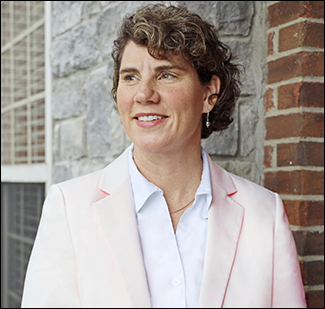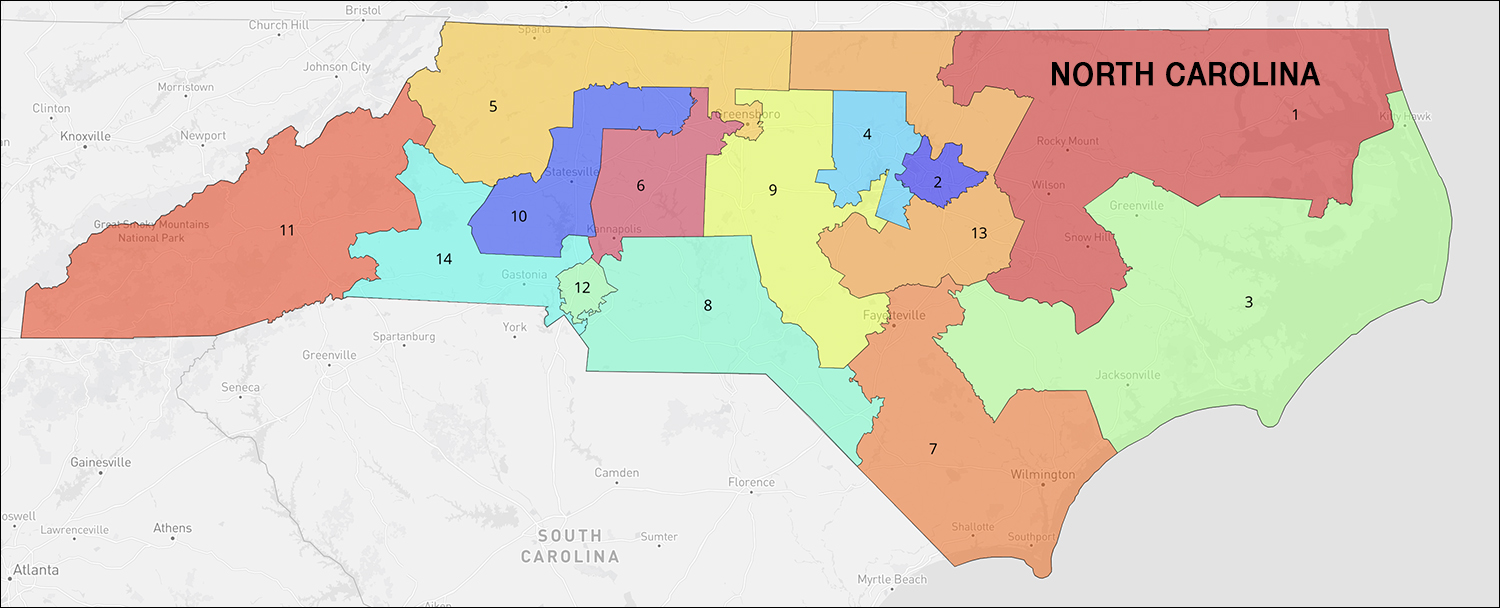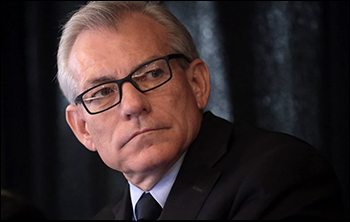By Jim Ellis — Monday, Oct. 13, 2025
Senate
Kentucky — Marine Corps veteran Amy McGrath, who proved her fundraising prowess in two unsuccessful political races, announced that she will enter the 2026 Kentucky US Senate race. Her previous losses were to Congressman Andy Barr, who may well again be her opponent in next year’s Senate general election, and Sen. Mitch McConnell.According to The Down Ballot political blog reporters, McGrath raised over $94 million for her two campaigns. She lost a close race to Rep. Barr, and in a landslide to Sen. McConnell.
Louisiana — Sen. Bill Cassidy has drawn another Republican primary opponent. St. Tammany Parish Councilwoman Kathy Seiden announced last week that she will join the growing group of Cassidy primary opponents. In the race are State Treasurer and former US Congressman John Fleming, state Sen. Blake Miguez (R-New Iberia), and Public Service Commissioner Eric Skrmetta. Rep. Julia Letlow (R-Start) continues to dangle the possibility of her entering the race. If she decides not to become a candidate, state Rep. Julie Emerson (R-Carencro), chair of the Louisiana House Ways & Means Committee, is likely to enter.
Late last year, the legislature and Governor changed Louisiana’s election system. Instead of a jungle primary for federal races, the state returns to a partisan primary format. Therefore, the new primaries are scheduled for April 18. If no candidate secures majority support in the initial election, a runoff between the top two finishers will occur on May 30.
House
CA-45 — Since former Rep. Michelle Steel (R) has decided not to seek a rematch in 2026 against freshman Rep. Derek Tran (D-Orange), Republicans may have found a new candidate. Former Cerritos City Councilman Chuong Vo announced that he will enter the 2026 race to challenge the new Congressman. Should the California redistricting map receive majority vote in the Nov. 4 special election, the 45th would move several points closer to the Democratic side but would still be a competitive seat. Vo says he will run regardless of the redistricting outcome.
IL-2 — Former nine-term Rep. Jesse Jackson Jr. (D) announced that he will attempt a political comeback in his former district. Jackson resigned from the House in 2012 after pleading to misusing $750,000 in congressional and campaign funds. He would spend 18 months in federal prison. In a crowded open Democratic field, Jackson will likely become the favorite to win the Democratic primary and then the seat next year. The 2nd District is open because incumbent Rep. Robin Kelly (D-Matteson/Chicago) is running for US Senate. Jackson’s brother, Jonathan Jackson (D-Chicago), currently represents the 1st Congressional District.
MD-7 — Baltimore City Councilman Mark Conway (D) filed a congressional committee with the Federal Election Commission suggesting that he may challenge veteran Rep. Kweisi Mfume (D-Baltimore). Rep. Mfume was first elected to the House in 1986 but left Congress to head the NAACP in 1996. He returned to the House in the 2020 election.
Prior to his service in Congress, Mfume spent eight years on the Baltimore City Council. It remains to be seen whether Conway is preparing a primary challenge or readying a congressional committee in case Congressman Mfume decides to retire.
MO-1 — Former Missouri Congresswoman Cori Bush (D), who was defeated in the 2024 Democratic primary, announced that she will attempt a political comeback. Bush declared that she will return for a rematch with freshman Rep. Wesley Bell (D-St. Louis), who defeated her 51-46 percent in the previous Democratic primary.
The 1st District is largely unchanged in the new Missouri redistricting map, so we will see a rerun of the 2024 campaign. In ’24, Rep. Bell went onto score a 76 percent win in the general election. During her two terms in the House, Bush was a member of the informal Democratic Socialist “Squad” caucus.
NH-2 — Democratic state Representative Paige Beauchemin (D-Nashua) announced that she will challenge freshman Rep. Maggie Goodlander (D-Nashua) in next year’s September Democratic primary. Beauchemin, who won her state position in 2022, says she will run a campaign based upon a “message of radical empathy and grassroots energy.” Rep. Goodlander will be a heavy favorite for renomination and re-election in 2026.
NY-19 — In a seat that has swung back and forth between Democratic and Republican representation in the US House, freshman Rep. Josh Riley (D-Ithaca), who defeated then-Rep. Marc Molinaro (R), sees a new Republican announcing his candidacy. In what promises to be a competitive race, state Sen. Peter Oberacker (R-Schenevus) stated that he will join the 2026 congressional campaign. We can expect this race to become a national congressional campaign that is expensive and highly competitive.
TN-9 — Tennessee state Rep. Justin Pearson (D-Memphis) this week announced that he will challenge veteran Rep. Steve Cohen (D-Memphis) who, as a white male, has held the majority black district since the 2006 election. Prior to his service in Congress, Rep. Cohen served 24 years in the Tennessee state Senate. This is another Democratic primary situation where a young challenger – Rep. Pearson is 30 years old – is challenging an older veteran incumbent. Rep. Cohen is 76 years old. This race can become highly competitive.
Governor
Alaska — Former Anchorage Mayor Dave Bronson (R), who was defeated for re-election to a second term, has entered the 2026 open Governor’s race. He becomes the 10th Republican vying for the party nomination. The group includes Lt. Gov. Nancy Dahlstrom and ex-appointed Attorney General Treg Taylor. Sen. Lisa Murkowski also has not publicly ruled out joining the campaign. On the Democratic side, former state Sen. Tom Begich is the only announced candidate. Begich, however, says he will withdraw if former Rep. Mary Peltola decides to enter. Gov. Mike Dunleavy (R) is ineligible to seek a third term.
Maine — Health care company executive Jonathan Bush, cousin to former President George W. Bush, announced that he is joining the crowded open Governor’s candidate field. Bush is now the seventh Republican to announce his or her candidacy. Democrats have five contenders, along with three Independents. Gov. Janet Mills (D) cannot succeed herself under Maine’s term limit law. She is expected to challenge Sen. Susan Collins (R) next year.
New Jersey — Despite considerable negative publicity for Democratic nominee and Rep. Mikie Sherrill (D-Montclair) over her stock transactions and Naval Academy cheating scandal controversy, a new Public Policy Polling survey finds her still leading Republican Jack Ciattarelli. The PPP results (Oct. 2-3; 703 registered New Jersey voters; text and live interview) see Sherrill posting a 49-43 percent advantage. Other polls show the Sherrill lead between two and eight points. It is probable the race is close. Ciattarelli has substantially under-polled in his previous statewide campaigns based upon the actual result. This will be an interesting race in the campaign’s final month as the candidates stream toward the Nov. 4 election date.
New York — After several polls had shown Gov. Kathy Hochul (D) posting large polling leads over presumed GOP candidate and Rep. Elise Stefanik (R-Schuylerville), an extensive Grayhouse firm survey (Sept. 20-26; 1,250 likely New York voters; 750 text-to-web; 500 live interview; 605 likely New York Democratic primary voters) sees a much closer ballot test result. According to Grayhouse, Gov. Hochul’s lead is just 48-43 percent over Rep. Stefanik.
This data also shows a tightening of the Democratic primary, though Gov. Hochul maintains a sizable lead. The ballot test for this cell segment shows the Governor’s advantage at 43-14 percent over Lt. Gov. Antonio Delgado.
Rhode Island — After toying with the idea of challenging Democratic Gov. Dan McKee in the party primary, term-limited Attorney General Peter Neronha announced that he will not enter the statewide race.
At this point, the Governor’s principal Democratic challenger is his 2022 opponent, former corporate CEO Helena Foulkes. State House Speaker Joe Shekarchi (D-Warwick) is also reportedly still considering a gubernatorial bid. The Rhode Island primary is not until Sept. 8, so much time remains for this race to gel. Winning the Democratic primary is tantamount to clinching the Governorship.
South Carolina — A new poll suggests the open South Carolina Republican gubernatorial primary has a new leader, and it is not any of the more established political names.
The Trafalgar Group just released a new October poll for the South Carolina Republican primary (Sept. 30-Oct. 2; 1,094 likely South Carolina Republican primary voters; multiple sampling techniques) and the race’s top finisher is Lt. Gov. Pamela Evette. From these results, Evette edges Rep. Nancy Mace (R-Charleston), Attorney General Alan Wilson, Rep. Ralph Norman (R-Rock Hill), and state Sen. Josh Kimbrell (R-Spartanburg), 20-16-12-9-1 percent, respectively with an undecided percentage of 41. All figures are rounded to the highest number.
Wisconsin — Ending speculation about whether he would enter the open Governor’s race, state Attorney General Josh Kaul (D) announced that he will seek re-election to a third term rather than enter what will be a highly competitive open campaign. The Democratic gubernatorial primary field already features Lt. Gov. Sara Rodriguez, Milwaukee County Executive David Crowley, former state cabinet secretary Missy Hughes, and two state legislators. Gov. Tony Evers (D) is not seeking a third term.





